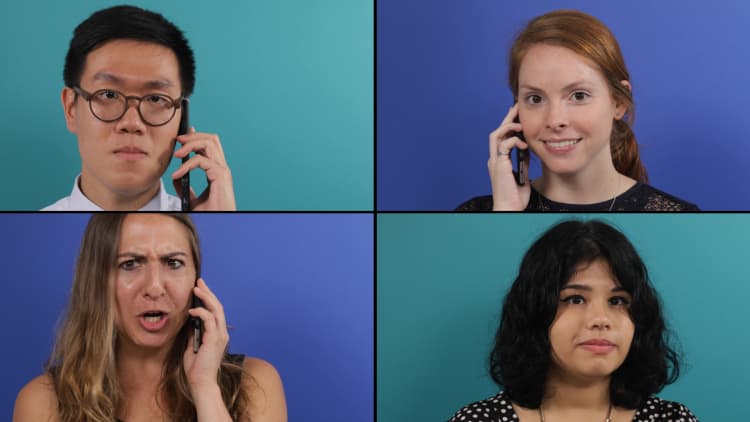Talk to any career expert and they'll tell you an informational interview, or an informal, professional chat with someone in your field or company, is a good idea.
"It helps you build relationships," says Angelina Darrisaw, career coach and founder and CEO of C-Suite Coach. "It makes you better at your performance. It gives you increased visibility and exposure." And it's entirely possible someone you chat with will keep you in mind for future job openings.
If you're looking to book one yourself, you'll want to first figure out who to reach out to then shoot them an email or LinkedIn message saying why you'd love to have a 15-to-30-minute talk.
When it comes time to have that informational interview, though, what do you say? Here's what Monster career coach Vicki Salemi recommends.
Ask, 'what were some challenges that you encountered?'
Before your informational interview, make sure to do some research on the person you're meeting with and the company they work for (if it's not yours). Find out what you can about their responsibilities and history and any projects their team or organization is taking on.
When you're at the informational interview, whether it be in person, over Zoom or on the phone, use the time to do the following:
- Introduce yourself briefly. Say something like, "I've been working in marketing for 10 years now and I'm looking to make a switch into sales," says Vicki Salemi, career coach at Monster. Or maybe you're looking to ascend into a job in management or you want to hear about this person's department in the company.
- Have a list of questions ready about what you're curious to learn. If you're looking to make a career switch similar to theirs, you can ask, "What were some challenges that you encountered? How did you overcome them?" says Salemi. "If they're working for your dream employer, you can ask, 'Okay, what is it like to work here in terms of the day to day?'" Or, "what do you think the hiring managers would look for in my resume? Where do I fall short?"
- Finally, "feel free also to go off script," says Salemi. If they say something that is really intriguing and that didn't occur to you during your research, "go and pursue that questioning."
Remember to "take it seriously but enjoy the conversation," says Salemi. At the end, say something like, "thank you so much, I would love to check in with you," she says. Then send them a thank you email for taking the time to talk soon after your meeting.
Want to earn more and land your dream job? Join the free CNBC Make It: Your Money virtual event on Oct. 17 at 1 p.m. ET to learn how to level up your interview and negotiating skills, build your ideal career, boost your income and grow your wealth. Register for free today.
DON'T MISS: Want to be smarter and more successful with your money, work & life? Sign up for our new newsletter!
Check out:
3 reasons to do informational interviews, say career experts: They can make you 'better at your job'



